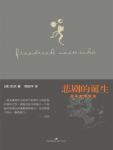Chapter 1 An Outline of Nietzsche's Aesthetics
Nietzsche's first work can be said to be the birthplace of his philosophy.In this work, Nietzsche uses the symbols of Apollo and Dionysus to explain the origin, nature and function of art and the meaning of life.Finding out the exact meaning of these two symbols is the prerequisite for understanding Nietzsche's entire aesthetics and philosophy.
Greek art has always aroused great interest among aestheticians.Before Nietzsche, Goethe, Schiller, and Winkelmann, the representatives of the German Enlightenment, all explained the reasons for the prosperity of Greek art with the harmony between man and nature, sensibility and reason.Nietzsche went against the tradition and believed that the prosperity of Greek art did not stem from the inner harmony of the Greeks, but from their inner pain and conflicts. Because he saw the tragic nature of life too clearly, he had two artistic impulses of Apollo and Dionysus , To use art to save life.
Apollo is the god of light, whose brilliance gives all things an appearance of beauty.Nietzsche said: "We collectively call the innumerable illusions of the appearance of beauty by the name of Apollo".In the Apollonian state, art dominates man "as a force toward illusion," whether he wants to or not.It can be seen that Apollo is a symbol of the appearance of beauty, but in Nietzsche's view, the appearance of beauty is essentially an illusion of human beings.Dreams are the Apollonian state of everyday life.In art, plastic art is a typical Apollonian art, and the images of the Olympian gods shown in Homer's epics and Greek sculptures can be regarded as a model of Apollonian art.
The Apollinian impulse, being an hallucinatory compulsive impulse, is irrational in nature.Some people think that Apollo symbolizes reason, but it is a misunderstanding.In fact, Nietzsche criticized Euripides' principle of "understanding and then beauty" in the novel, accusing him of replacing Apollonian intuition with calm thinking, which has already drawn a clear line from this misunderstanding.We should remember that Nietzsche always regarded reason as the power to kill instinct, and condemned the rational philosophy of Socrates and Plato for killing the artistic instinct of the Greeks—including Dionysian and Apollonian impulses.
Dionysus symbolizes the indulgence of emotions.Nietzsche said: Dionysian state is "excitement of the whole emotional system", "the total excitation and total release of emotions"; in the Dionysian state, art "as a force driving towards indulgence" dominates people.Dionysian mood, however, is no ordinary mood, but a tragic mood with metaphysical depth.
The symbol of Dionysus comes from the Greek Dionysian ritual, in which people broke all taboos, drank drunkenly, and indulged their sexual desires.Nietzsche believes that this is to pursue an experience of releasing the shackles of individualization and returning to the original nature.For the individual, the disintegration of the individual is the highest pain, but this pain relieves the root of all pain, and obtains the highest joy of merging with the world itself.Therefore, the state of Dionysus is a state of madness intertwined with pain and ecstasy.Drunkenness is the Dionysian state of everyday life.In art, music is pure Dionysian art, tragedy and lyric poetry seek the form of the gods, but in essence it is also Dionysian art, which is the expression of the world's ontological emotions.In short, both Apollo and Dionysus are rooted in the deepest instinct of human beings. The former is the impulse of individual people to affirm themselves through the illusion of appearance, and the latter is the impulse of individual people to deny themselves and return to the world itself.In a certain sense, the relationship between the two is similar to Freud's life instinct and death instinct, both of which belong to the field of irrationality.

